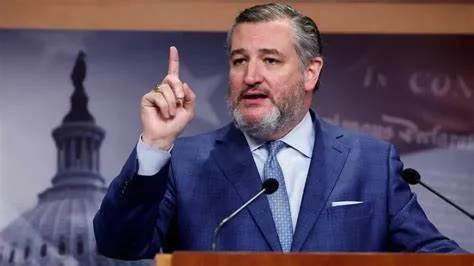
A United States lawmaker, Senator Ted Cruz, has said that Nigerian government policies are creating an enabling environment that allows the persecution and alleged killing of Christians in the country.
In a post on his X (formerly Twitter) account on Friday, the Texas senator criticised Nigerian authorities, accusing them of fostering an unsafe environment for religious minorities.
Cruz said, “Nigerian officials know their policies have created an environment in which Christians are being persecuted and slaughtered, including their enforcement of sharia law and their tolerance of Islamist violence.”
The senator’s comments come amid continued concerns by international human rights groups over attacks on Christian communities, especially in parts of northern Nigeria and the Middle Belt.
Organisations such as Open Doors, Amnesty International, and the U.S. Commission on International Religious Freedom (USCIRF) have repeatedly raised alarms over rising insecurity and sectarian violence.
Cruz was reacting to the African Union Commission Chairman, Mahmoud Ali Youssouf’s dismissal of the genocide allegations while speaking with reporters at the United Nations headquarters.
“Let me say this first, there is no genocide in northern Nigeria,” Youssouf had said, adding, “We have issued a communication making clear that what’s going on in the northern part of Nigeria has nothing to do with the kind of atrocities we see in Sudan or in some parts of eastern DRC.”
He continued, “The first victims of Boko Haram are Muslims, not Christians, and I’m saying this with documented references.”
Youssouf said the situation is “extremely complex,” warning international actors not to reduce it to a single narrative.
“The complexity of the situation in northern Nigeria should not be taken lightly, nor described with overly simple language,” he said, stressing again, “There is no genocide in northern Nigeria.”
Cruz has been an outspoken critic of the Nigerian government’s handling of religious freedom issues.
He has previously advocated for stronger U.S. pressure on Nigeria, including consideration of sanctions or the reinstatement of the country on the U.S. list of Countries of Particular Concern (CPC), from which it was removed in 2021.
The Nigerian government has often rejected such accusations, insisting that violence in the country is driven by criminality, banditry, and farmer–herder conflicts rather than religious persecution.
Officials have also argued that the government is investing heavily in security and working to address extremism.
 Premium News
Premium News